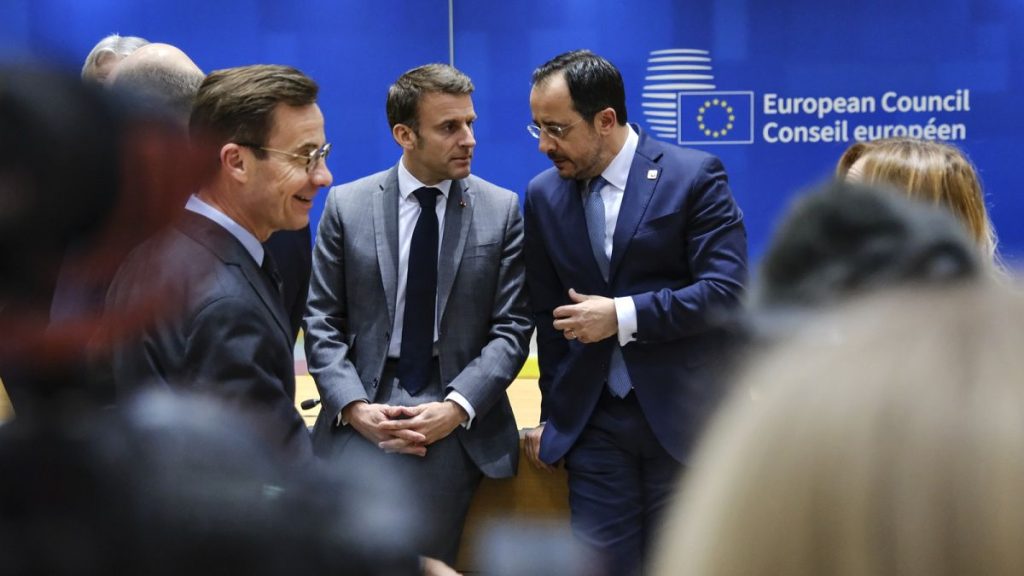European Union leaders are convening in Brussels for a two-day summit focused on economic competitiveness, but the ongoing crisis in the Middle East is looming large over the agenda. Tensions have escalated following an Israeli airstrike on the Iranian consulate in Damascus, which resulted in a retaliatory attack by Iran on Israeli soil. The EU and the US are calling for restraint while vowing to tighten sanctions on Iran. The first day of the summit will address a wide range of issues including the conflicts in Israel, Iran, Gaza, and Lebanon, as well as the situation in Ukraine and relations with Turkey.
Lebanon is a particular area of concern due to its fragile government, financial difficulties, and sectarian divisions that have made it vulnerable to Iranian influence. Hezbollah, a Tehran-backed paramilitary group, participated in the recent attacks against Israel, raising fears of further escalation. Diplomats are worried that the conflict could spill over into Lebanon, triggering a migration crisis towards European shores. The draft conclusions of the summit emphasize the EU’s commitment to Lebanon’s stability and support for vulnerable populations, but do not explicitly mention the migration pressure on Cyprus, which is already experiencing an increase in arrivals.
The summit is also expected to address the situation in Gaza and call for an immediate ceasefire, as well as the release of all hostages held by Hamas and the provision of humanitarian aid for Palestinians. Discussions on EU-Turkey relations will focus on issues such as sanctions evasion, democratic backsliding, and the dispute with Cyprus. While Turkey remains a strategic priority for EU leaders, concerns about the country’s actions and relations with the bloc persist. Ukrainian President Volodymyr Zelenskyy will deliver a virtual speech at the summit, highlighting the need for international support in defending against Russian strikes and emphasizing the importance of solidarity in the face of aggression.
The economic competitiveness debate will take center stage on the second day of the summit, with a focus on a report drafted by former Italian prime minister Enrico Letta. The report includes recommendations to strengthen the single market and address competition from global powers such as the United States and China. The EU leaders will discuss ways to deepen economic integration and enhance the bloc’s competitiveness in the face of evolving global challenges. As the summit unfolds, the ongoing conflicts in the Middle East and Eastern Europe will continue to shape the discussions, highlighting the complex and interconnected nature of international politics and economics. EU leaders are faced with the daunting task of navigating these challenges while pursuing economic growth and stability within the bloc.


